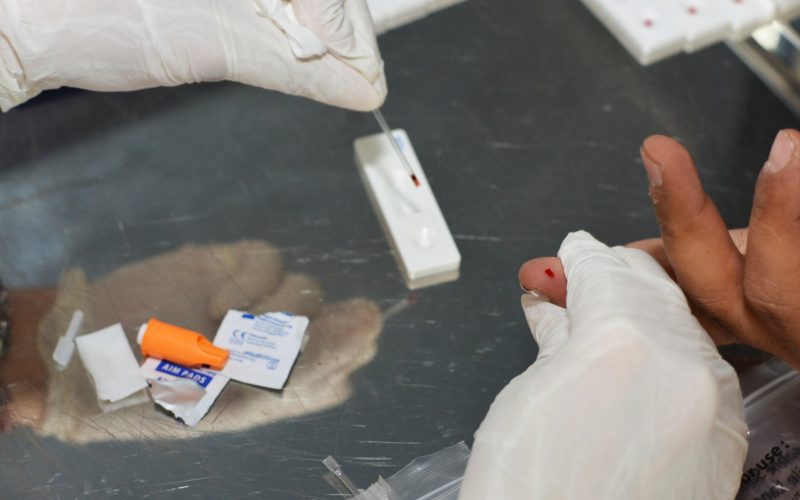Therapy failure is a threat to the health of people living with HIV, especially in resource-limited settings. Initiatives to reduce treatment failure such as stricter cut-off points for viral suppression, better clinical follow-up and improved HIV therapy monitoring can greatly reduce therapy failure. These are the main take-aways by Lucas Hermans from UMC Utrecht in his PhD thesis that he will defend on November 15, 2022.
The human immunodeficiency virus (HIV) has a profound impact on global health and severely affects many low- and middle-income countries. Combination antiretroviral therapy (ART) has transformed HIV infection from a deadly disease into a treatable chronic condition. However, ART is not able to cure HIV infection and should be continued for life. During treatment, there is a risk that therapy will fail and that the number of viral particles will rise again. Therapy failure may result from inadequate adherence to therapy and may be associated with resistance of the virus to medication. Therapy failure poses a significant threat to the success of large-scale HIV treatment programs in African countries, where the care and laboratory infrastructure needed to timely detect and address failure is limited. The PhD thesis of Lucas Hermans (Department of Medical Microbiology at UMC Utrecht) aims to contribute to the durable effectiveness of ART through the development of novel strategies for laboratory monitoring during treatment for sub-Saharan African countries. Most of this research was performed in South Africa, where approximately 10-15 percent of inhabitants are living with HIV.
The research by Lucas Hermans shows that while ART is usually effective, success is not attained in all cases for a variety of reasons. It confirms that the risk of therapy failure is not only determined by patient-related factors such as gender and income, but equally by characteristics of the virus, in particular viral resistance to ART. It also shows that there is a considerable delay between the detection of therapy failure and clinical action to address this problem in routine clinical care in sub-Saharan Africa.
His thesis also explored novel strategies for HIV treatment monitoring. Results from a large South-African study presented in this thesis that included over 70,000 people living with HIV showed that a stricter definition of treatment success, that is currently already in use in high-income countries, should also be used in low- and middle-income countries, because this definition allows for earlier identification of therapy failure. Furthermore, innovative tools for drug exposure testing (for example, ART drug level testing using immunoassay and point-of-care ART urine testing) may be able to detect suboptimal adherence to treatment and to identify persons who are at risk of harbouring drug resistant HIV.
Lucas Hermans MD
Based on the results of his research, Lucas Hermans presents three recommendations for HIV therapy monitoring in resource-limited settings:
The Translational Virology Research Group at UMC Utrecht focuses on the next challenges to be reached in HIV management: improvement of HIV care and the complex search for a generalizable cure. Under the umbrella of the ITREMA project, supported by ZonMw/WOTRO they have established a research collaboration connecting virology, pharmacology, infectious diseases, immunology, public health and social sciences from research centres in the global North and South. This collaboration has provided a scientific platform for interdisciplinary research, data sharing and local capacity building. One of the major accomplishments of this collaboration is the scientific work presented in the thesis of Lucas Hermans.
Lucas Hermans (1986, Utrecht) will defend his PhD thesis on November 15, 2022 at Utrecht University. The title of his thesis is “HIV treatment monitoring in resource-limited settings – current paradigms and future strategies.” Supervisors are prof. dr. Roel Coutinho (Department of Global Health, UMC Utrecht) and prof. dr. Anne Wensing (Department of Medical Microbiology, UMC Utrecht). Co-supervisor is dr. Monique Nijhuis (Department of Medical Microbiology, UMCUtrecht). Lucas Hermans currently works as a medical officer at the Department of Internal Medicine at Groote Schuur Hospital, Cape Town, South Africa.
Preceding the defense of Lucas Hermans’ PhD thesis, UMC Utrecht organizes a symposium titled “Global insights in HIV Monitoring and Cure” on Monday Nov. 14, 2022 (starting 13.30 hrs., van Peperzeelzaal, Q-building). For more information and registration (max. 50 participants), click here.

